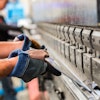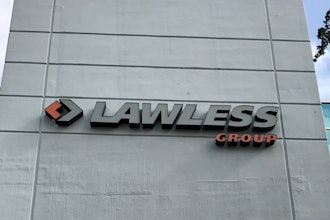
The battle for the Pro contractor market is heating up between distributors and their big box competitor retailers. And there’s plenty of sales at stake.
In its recent Q2 earnings report, The Home Depot said sales to Pro contractors outperformed the DIY customers for the first time since the pandemic started. The company says it is “very optimistic” that the strength of that Pro business will continue to grow. Meanwhile, Home Depot reported that 45 percent of its sales comes from pros.
Ted Decker, president and COO of Home Depot, told analysts his company has been building a B2B website for the pro market and, along with its Pro Xtra app (a free loyalty program app), it allows contractors the ability to engage on the website “which has all sorts of functionality built out specifically for the contractor.”
The Pro Xtra loyalty program gives pros access to special pricing and the new B2B website where they can create bills of material for jobs, get quotes, track receipts and quickly reorder items.
In addition, Home Depot is taking steps to speed up its supply chain operations. Decker pointed out that “speed and reliability is what's required, particularly with our Pro customers.”
Decker said the whole purpose of the supply chain is Home Depot’s ability to deliver all of its products, parcel and big and bulky, to 90 percent of the U.S. population same and next day.
As a further indication of its intent to speed up delivery, Home Depot has hired Walmart to deliver paint, tools and other online purchases to customers' homes and at job sites. The home improvement retailer is the first customer for Walmart’s new delivery business, GoLocal.
Many of those products will be ordered online as sales through e-commerce for Home Depot increased by 86 percent in fiscal 2020, which ended Jan. 31, compared with the prior year.
Lowe's Goes Pro
And Lowe's continues its plans to grow its pro market business. A recent article in Forbes pointed out that Lowe’s has a dedicated “pro” section of the store that features frequently-purchased items and a convenience section with other items needed on the job site. It is also adding phone charging stations and dedicated checkout lanes, with employees who can help load items. Parking lots will begin to feature dedicated spots that are large enough for trailers, windshield cleaning stations and free air stations for tires and tools.
It rolled out a pro loyalty program, which includes personalized discounts and a dashboard to track previous orders and make reordering easy. It also began offering tool rentals at some stores.
Lowe's reported that its strong results for the quarter demonstrates that its Total Home strategy is working, with U.S. sales comps up 32% on a two-year basis. In the quarter, Lowe’s drove 21 percent growth in Pro and 10 percent growth in Installation Services.
About 25 percent of Lowe's sales come from pro contractors and company officials have pledged to increase that percentage.
Joe McFarland, EVP of stores at Lowe’s emphasized that his company is “focused on making the Pro shopping experience both online and in-store as easy and intuitive as possible.”
Where are Distributors?
Distributors, meanwhile are fighting to keep their share of the pro market.
A recent research project conducted by the Channel Marketing Group and with the support of HMI Performance partners, Prokeep, and SproutLoud, sought to understand what makes a contractor “loyal” to a distributor, where they are purchasing their materials and other key business drivers.
The study pointed out that although distributors still control the majority of contractor spend (roughly 72 percent), this number is slowly eroding. In today’s environment, fewer than 20% of contractors are making purchases exclusively through distributors.
The report was based on responses from 750 contractors in five sectors: electrical, roofing, plumbing, HVAC/R and landscaping industries.
David Gordon of the Channel Marketing Group and author of the Electrical Trends blog, wrote that the number one criteria influencing contractor decision-making today is access to inventory.
Gordon also noted that people and process are still important to contractors. And although It is still a people business, the “people” who are important today are more likely to be an inside salesperson, especially given the longevity of account relationships.
Omni-Channel Outreach
There is little doubt that the use of e-commerce is soaring among contractors and their distributors as well as with other suppliers.
More than 90% of contractors now make purchases through retailers like Home Depot and Lowe's, while at least 66% are now purchasing at least some materials from online-only suppliers like Amazon.
Perhaps more notable, though, is that nearly 30% of contractors now make at least half of their purchases directly from manufacturers.
Lowe's and Home Depot are not the only companies seeking to expand their business to contractors. Ace Hardware, for example, the largest retailer-owned hardware cooperative in the world, has already opened 110 new stores in 2021 and plans to open at least an additional 60 stores by the end of the year.
Ace operates more than 5,500 locally owned hardware stores in all 50 states and 70 countries, with global sales topping $20 billion.
Two years ago Ace Hardware announced the rollout of "Buy Online, Deliver from Store" at participating locations across the country. The new delivery option is a key feature of the enhanced e-commerce site, AceHardware.com.
Ace now has 17 distribution centers throughout the United States and its Jensen Distribution Services, Inc., is a wholesale hardware distributor that serves more than 2,000 customers in 11 western states. Jensen carries more than 65,000 items.
 Keough
Keough
Jack Keough is president of Keough Business Communications. He was editor of Industrial Distribution for 26 years. You can reach him at [email protected].






















